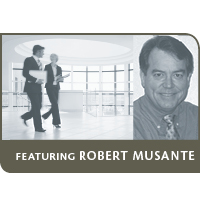 Wills, Estates and Trusts Conference: Trusts
Wills, Estates and Trusts Conference: Trusts
Course Date: November 3, 2005
Wills, Estates and Trusts Conference: Trusts
Course Date: November 3, 2005
7:45 – 8:45 am
OPTIONAL ETHICS SESSION: “CLE-TV: Identifying Conflicts and Managing Risks”
9:00 – 10:30 am
- Examinations for discovery: an intellectually rigorous discipline
- Battleships: the checklist of recurring discovery questions re recurring issues
- Four nearly everybody-agrees examination for discovery rules
- Grand Unified Theory of civil litigation
- Rationale re saving attacks for surprise at trial
- The cut-to-the-chase argument vs. the stupidest orthodoxy
- Whack! defined and demonstrated
- Seven advantages: cross-examination in discoveries vs. trial
- A famous cross-examination analyzed
- Introduction of The Magnificent Seven
- When to ask leading questions in discoveries
10:30 - 10:40 Networking Break
10:40 - 11:45 am
- Exceptions to the leading question rule
- When the truth is not nearly enough
- Bluffing witness into an admission
- Witness’s escapes from answers to leading questions
- Using rhetoric to intensify arguments
- A 2nd famous cross-examination analyzed
- Reasoning questions
- Firewalling introduced
- Interrogatory-like questions
11:45 – 12:40 pm
- Universal questions
- A 3rd famous cross-examination analyzed
- Enumeration
- Looping
- Identifying a mediocre examination for discovery in only 60 seconds
- Making the implied/hidden express: using lexicography
12:40 – 1:40 pm Lunch (on your own)
1:40 – 2:55 pm
- Making the implied/hidden express: using logic
- The transfer of information rule and the most common dumb question
- Making the implied limits of witness’s “frail” memory express
- A 4th famous cross-examination analyzed
- Attacking “crap” with high school English skills
- the narrow question
- question-dodging
2:55 – 3:05 pm Networking Break
3:05 – 4:30 pm
- Attacking “crap” with high school English skills (cont’d.)
- 2 answers in 1 question
- The needle in the haystack answer crap defined
- More re “wisdom” of saving attacks for surprise at trial
- Conducting interviews vs. conducting knockout examinations for discovery
- Summary and coda
Contributor(s):
Contributor(s):
Contributor(s):
Contributor(s):
Contributor(s):
Contributor(s):
Contributor(s):

